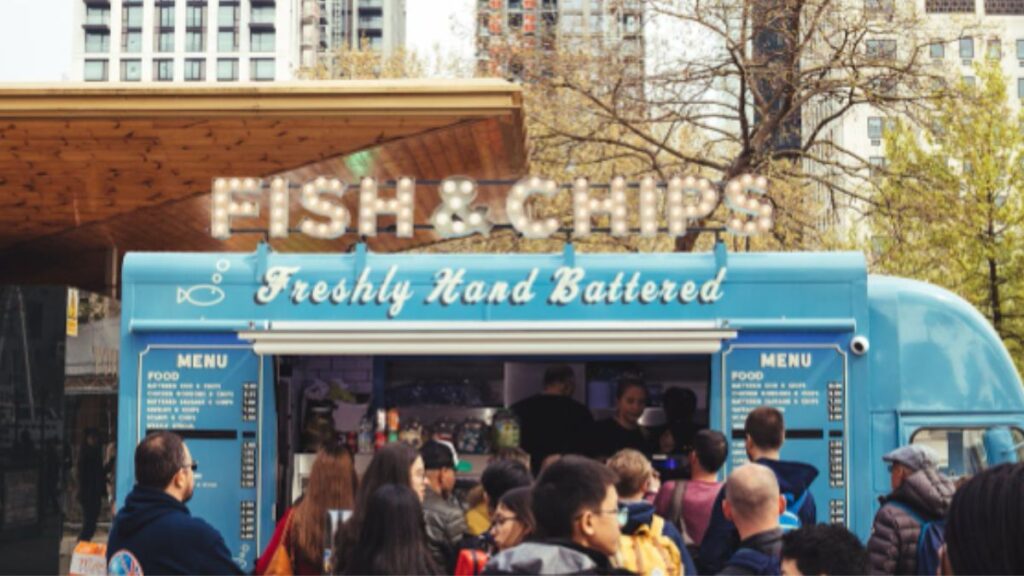Starting a food truck business has become an increasingly popular venture for entrepreneurs who are passionate about food and looking to combine their love of cooking with the thrill of running their own business. The food truck industry has seen a significant boom in recent years, offering great opportunities for those looking to enter the food service world with a relatively lower initial investment compared to opening a traditional brick-and-mortar restaurant. In this ultimate guide, we’ll explore the key steps to starting a successful food truck business, from initial planning to managing the day-to-day operations.

Understanding the Food Truck Business Model
Before diving into the logistics of starting a food truck, it’s essential to understand what makes this business model unique. Food trucks offer the ability to reach customers in various locations, providing flexibility and convenience that brick-and-mortar establishments simply cannot match. They also allow for a more direct connection with your customers, making it easier to build brand loyalty. Food trucks also offer lower startup costs compared to traditional restaurants, though there are still significant expenses to consider, such as buying or leasing a truck, outfitting it with the necessary kitchen equipment, and obtaining licenses and permits.
Planning Your Food Truck Concept
Like any business, successful food trucks begin with a solid plan. One of the first steps is deciding on your food truck’s concept. This involves identifying what kind of food you want to serve, who your target customers will be, and what sets your food truck apart from others. Consider trends in the food industry, your culinary expertise, and the specific needs of your potential customers. Will you focus on fast, casual dining, or gourmet meals? Will you offer ethnic foods, comfort food, or unique fusion dishes? Thorough market research and a well-defined concept will help you carve out a niche in the competitive food truck market.
Choosing the Right Food Truck and Equipment
Your food truck is the heart of your business, so choosing the right one is essential. When selecting a food truck, consider factors such as size, condition, and the type of food truck equipment you’ll need. Will your truck require a full kitchen setup with fryers, grills, and ovens, or is a smaller kitchen sufficient for your concept? Think about how the truck will be branded and designed to attract customers. A visually appealing and functional truck can make a huge difference in drawing people in. Don’t forget to account for maintenance and repair costs, as the truck will be in constant use.
Legal Considerations and Permits
Navigating the legal side of starting a food truck business is crucial to avoid unnecessary fines or delays. Each city or state has its own set of regulations when it comes to food trucks, so it’s important to research the specific permits and licenses you’ll need. Some common requirements include health department permits, food handling certifications, parking permits, and business licenses. You’ll need to comply with local zoning laws and parking restrictions. Make sure to reach out to local authorities to ensure you’re in full compliance with the law before launching your food truck.
Securing Financing for Your Food Truck
While food trucks are generally less expensive to start than traditional restaurants, they still require a significant investment. Purchasing a truck, outfitting it with kitchen equipment, and covering startup expenses can be costly. Securing financing for your food truck is an important step, and there are several options to consider. If you have personal savings, this could be a good starting point. You can also explore small business loans, and grants, or seek out investors who are interested in the food truck industry. Some entrepreneurs turn to crowdfunding platforms like Kickstarter to raise capital.
Writing a Business Plan
A comprehensive business plan is crucial to the success of your food truck business. This plan serves as a roadmap for your operations and financial strategy. It will outline your business goals, the steps you need to take to achieve them, your target market, and your marketing strategies. Your plan should also include financial projections, covering startup costs, anticipated revenue, and ongoing expenses. By clearly defining your objectives and approach, you’ll be better equipped to make informed decisions and secure potential investors or loans to fund your venture.
Creating a Menu That Sells
Your menu is one of the most important aspects of your food truck business. It should reflect your concept and appeal to your target audience while also being manageable in a small kitchen environment. Keep the menu simple and focused, offering a select number of dishes that can be made quickly and efficiently. Consider offering a few signature items that will set your food truck apart from others. Make sure the ingredients are easy to source and can be stored in your truck without taking up too much space. Lastly, price your menu items competitively to ensure profitability while keeping customer satisfaction in mind.
Marketing Your Food Truck
Building a strong marketing strategy will help you stand out in a crowded food truck market. Start by establishing a strong online presence through social media platforms such as Instagram, Facebook, and Twitter. These platforms allow you to engage with your customers, share behind-the-scenes content, and update them on your truck’s location. Consider partnering with local events or food festivals to gain visibility and attract new customers. Offering promotions, discounts, or loyalty programs can help build a dedicated customer base. Word-of-mouth marketing is powerful in the food truck industry, so always focus on providing an excellent customer experience.
Managing Day-to-Day Operations
Once your food truck is up and running, managing the day-to-day operations efficiently is key to success. This includes maintaining inventory, handling food prep, managing staff (if applicable), and keeping track of finances. Proper inventory management ensures that you don’t run out of key ingredients while minimizing waste. Scheduling and managing employees (if you have them) is also crucial to maintain smooth operations. Keep your truck clean and well-maintained to comply with health standards and create a positive impression on your customers. Financial management is also essential, so keep track of your cash flow and expenses to ensure profitability.
Expanding Your Food Truck Business
Once your food truck is established and running smoothly, you may want to consider expanding your business. This could involve adding more trucks, hiring additional staff, or launching a catering service. Expansion should be approached carefully, as it requires additional resources and management. Scaling your food truck business will require significant planning, but it can help you increase revenue and build a larger brand presence in the market.

Starting a successful food truck business is no small feat, but with the right planning, passion, and dedication, it can be an incredibly rewarding endeavor. By following the steps outlined in this guide—understanding the food truck business model, developing a strong concept, securing financing, managing operations effectively, and creating an effective marketing strategy—you’ll be well on your way to serving up delicious meals to a loyal customer base. With hard work and a commitment to quality, your food truck could soon become the go-to spot for food lovers in your area.







